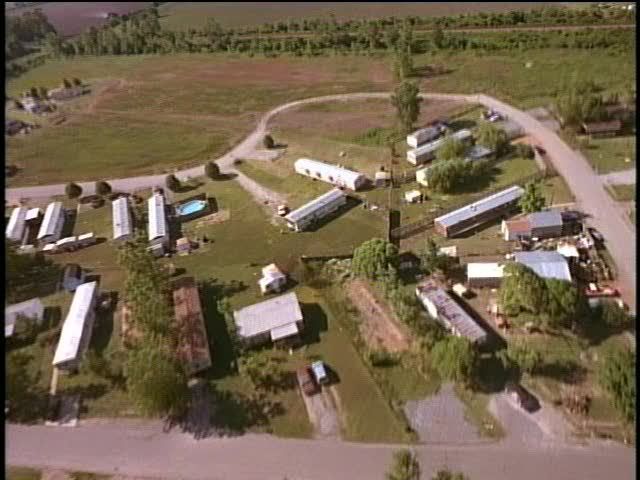
It was a long, hot summer and I'd just moved home to northampton to sweat it out. Jobless and running out of money fast, I spent most of my time lazily googling vacancies at local hotels/pubs/ discount shoes shops and getting half drunk on cheap beer. I also spent a lot of time on Wikipedia, getting lost in an endless maze of information, working my way through dialects of the english language and somehow ending up on a page about strong winds in the Midwest.
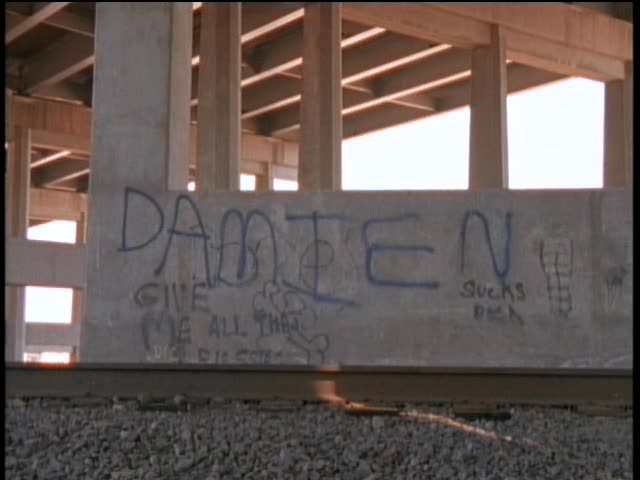
That long, hot summer two years ago, I was reading through Wikipedia's list of missing persons, absorbing myself in stories of children and fathers and wives who left one day to do something seemingly normal (buy cigarettes, deliver newspapers) and never returned. This soon led me to a page about unsolved mysteries, which in turn led to unsolved murders. A lot of these murders were old and sensationalised, reminiscient of jack the ripper in style and lack of information, and they were stories I'd read before. I flicked through pages and pages of familiar stories before noticing one right at the bottom that I hadn't heard of before - 'West Memphis three murders'. I clicked the link, not even knowing where West Memphis was, not knowing the importance it would soon hold, the influence it would have over my views of the judicial system and criminal justice in general.
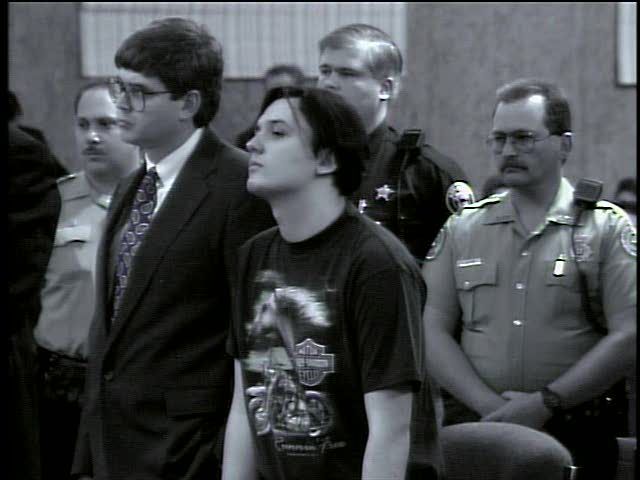
If you haven't heard about the West Memphis three case (and a suprising amount of people haven't - maybe this is because it occured in the backwoods of a poor southern town, to working class boys who lived in trailer parks) then the
crime library article is a good place to start. There's a good chance that you will never stop. For me, the west memphis three case was not the usual kind of wikipedia article where I read the page, clicked a few links, and then moved on - instead, it grabbed hold of me and refused to let go. Now that you've been warned...
It is not an easy case to read about - firstly, the details themselves of the brutal murders of Steven Branch, Christopher Byers, and James Moore are pretty gruesome. Every time I see their three faces lined up next to each other, immortalised forever on the internet (what a fucked up eulogy), I think to myself that these boys are never coming home. The case is also difficult to read about in a more political sense. If you manage to get to the part of the article where the sentencing takes place and you think that justice has been served, then you're probably not the kind of person I want to know. Mostly, the case is difficult to read about when these two points are combined - at it's heart, the case is about six boys who were victims of situations beyond their control, who were used and controlled by those who had power over them. Six boys who never got to grow up normally, or at all. Six boys who are never coming home...perhaps, until now.
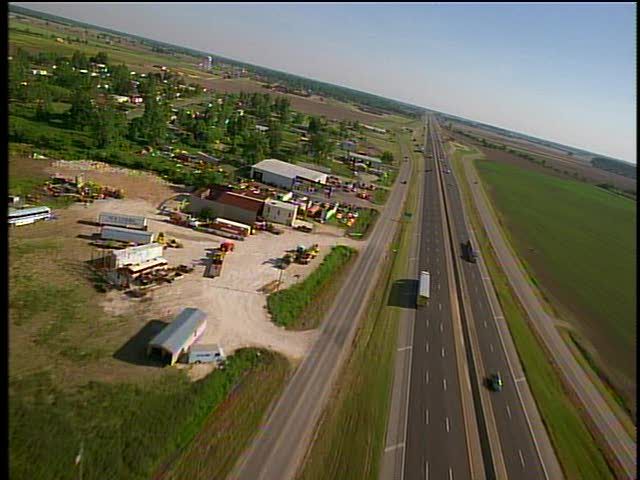
Our story begins and ends in Arkansas, more specifically the small city of West Memphis. Just to set the scene - a large percentage of its occupants are living below the poverty line, and crime levels are considerably higher than average. It is also a city of divide. Clusters of trailer parks are sporadically placed between well-groomed streets consisting of almost-stately family homes. Jessie Misskelley, Jason Baldwin, and Damien Echols did not belong to these well-groomed streets, instead growing up in run down trailer parks and extremely dysfunctional families. Perhaps it is fair to say that they did not belong to the streets of West Memphis at all - both Damien and Jason were regularly described during their trials as wearing a lot of black, growing their hair long, listening to heavy metal. In '90's small town America, this was not a regular occurence. So irregular, in fact, that it was one of the factors that contributed to the arrest and sentencing of all three boys. Favouring black clothes and heavy music soon turned into worshipping the devil and committing what the local police and media christened a satanic cult crime. This led to an outbreak of perhaps predictable 'satanic panic', now widely known to be a myth. In the town of West Memphis, though, where churches line the streets like trees and the majority of the population is heavily christian, blaming satan-worshippers was a very real (and very convenient) way to explain the murders without implicating a careless or vengeful god - or, even worse, implying that there is no god at all.
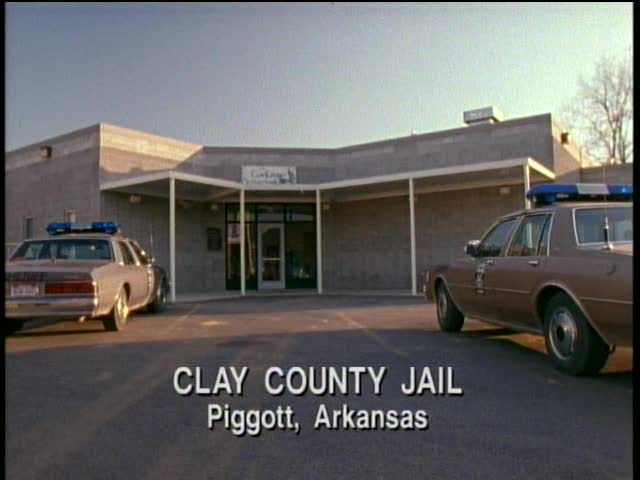
I guess it's impossible to tell someone else's story without somehow comparing it to your own. When the west memphis three murders took place I was almost exactly a month away from turning four years old. Nine years later, at the age of thirteen, I was dressing in black and hiding in my room, regularly updating my teenopendiaries and livejournals with depressing teen angst, blasting Marilyn Manson through the headphones of my walkman and pretending he spoke to my soul.
Northampton is a large town, the largest town in England that hasn't yet become a city (due to the lack of a steepled church, which I think is a fitting contradiction to west memphis), but it is still small. Whilst it parallels West Memphis in this regard, and also in that it is predominantly working class, it is also extremely different. although I felt like an outsider in Northampton, there were places and people available to me outside of the boundaries of school that offered me the chance to be who I wanted and do what I wanted. Perhaps most importantly, I grew up in the age of the internet - when I was thirteen, I already had my own website, my own sense of virtual freedom. Being able to connect with others in this way was crucial to my teenage years, and also to the society that was slowly changing around me. The very existence of the internet, the connection of likeminded people through the internet, and the discovery of other types of people and lives through personal websites and social networking, meant - and still means - that we are all somewhat familiar to each other. Nothing is unusual. Wearing black is not jail-worthy. The West Memphis three boys did not grow up in the same society as I did - West Memphis was the backwoods, hidden away, a drive-through, and whilst that might not matter today, with internet connection rife and available almost everywhere, it mattered then. Imagine living in a dead end town or city, far away from New York or Los Angeles or any other thriving, modern city, and with nothing to connect you to that kind of life. Nothing to connect others with it, either, or even make them aware of it. Imagine the suspicion that would follow you, the witch hunt.

This witch hunt existed in West Memphis, to the extent that it lead to the arrest, trials, and sentencing of Damien Echols, Jessie Misskelley, and Jason Baldwin. No DNA evidence linked them to the murders of the three young boys. Misskelley was forced into confessing. Reports of a bloodied, disorientated man walking into a local diner just after the murders had occured was ignored. Blood and dirt samples from other potential suspects were 'lost'. Echols was sentenced to the death penalty with, I repeat, none of his DNA located at the scene of the crime. In fact, nothing linked the boys to the crime scene except black clothes, supposedly satanic beliefs, and wishful thinking. The town was swept up in the brutal murders, and they did not want to believe that one of their own, a white, hard-working, god-fearing southerner, could do something so terrible, even though this goes against pretty much everything Wikipedia, Criminal Minds, and Law and Order SVU has taught me. The dress code of the West Memphis three seems to have blinded a lot of locals to the extremely suspicious behaviour of more regular southern gents (lookin' at you, John Byers) It's a cliche, but a lot of the time it really is easier to blame the different, the unknown.

Today, I was browsing through a forum when I saw a familiar picture - black and white, three faces, two long-haired, one short. all three holding signs stating that they are now property of the W. Memphis police dpt. Damien Echols with his chin raised, almost defiant. Jessie Misskelley looking straight at the camera, tired, worn down. Jason Baldwin reminds me of my brother, baby faced. A child. Underneath this picture is a short paragraph. To me, a whole paragraph is not needed. To me, it begins and ends with the words, "the West Memphis three have been freed".
The West Memphis three have been freed. I'm hesitant to call it true justice because of the circumstances, but I can't help but be extremely happy. It sounds dramatic but I actually had tears in my eyes when I found out. Don't get me wrong, I hate that they had to take the plea bargain, and that this case is probably going to be closed forever now, and that this is what passes for justice. I'm angry that it took this long to come around, and I'm angry that this isn't the last time someone innocent will be locked away. I'm incredibly sad for all of the parents who suffered and are still suffering through what their children were put through. I'm sad that the truth is lost now. but mostly, I am incredibly happy that those boys will never have to waste another day of their lives in a cell. This is some small kind of justice, a tiny payout for almost twenty years, but it's here, at last, and it's over.
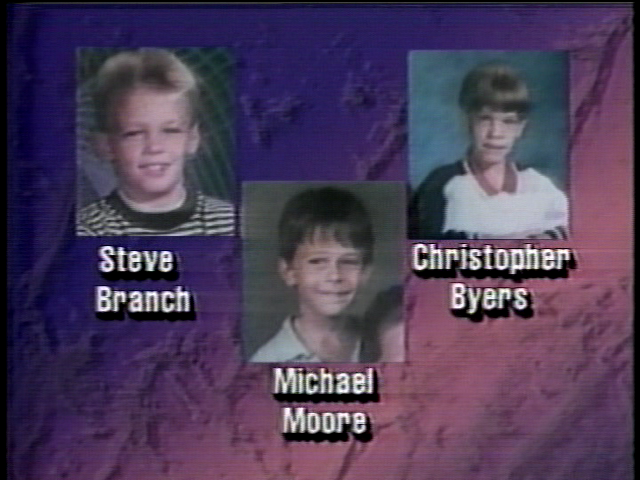
Of course, it's not over for three of the boys. Christopher Byers, Steven Branch, and James Moore aren't coming home. It would be unfair to say that justice has been served - unfair because their killer is potentially still alive, unfair because both police and politicians wasted valuable time, years of it, punishing the wrong people. The only justice I can see for these boys is making sure that the judicial system is never allowed to make a mistake like this again - that it is not allowed to spend time and money attempting to prosecute suspects who cannot be linked to the crime in any way, instead of searching for the real culprits. To Christopher, Steven, and James - I hope you rest in peace, and I hope your short years were very good to you and you were loved. To Damien, Jessie, and Jason - I wish you all long and fulfilling lives.
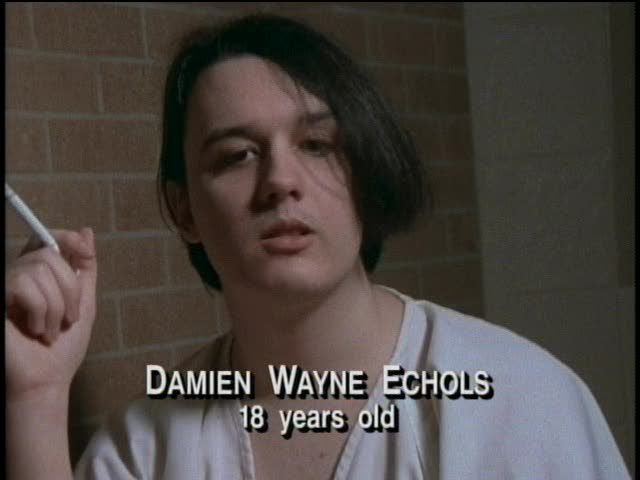
(Pix from
http://s85.photobucket.com/albums/k62/westmemphis3/PL1/?start=all)
(Good article -
http://www.arktimes.com/ArkansasBlog/archives/2011/08/19/flash-west-memphis-3-freed-in-plea-bargain-on-1993-murders)
 Back to work with a headache, a backpack full of pills, and the last hurrah of a three day hangover still in my bloodstream. Sat through slideshow after slideshow after slideshow and slowly and methodically picked away the skin from around my fingernails. Distracted myself through important meetings by thinking about the awesome lives I could be living (all of them imaginary and terribly impossible, of course). Richard Brautigan killed himself September 14th, David Foster Wallace September 12th. Two of the only men who ever stood by me, two of the only men I ever felt even vaguely on the same page as. September is always the saddest month, but I guess I have some things to look forward to - my friends coming together in the same town for a weekend, a roadtrip to Newcastle, maybe even crashing with another friend in Berlin. I'm just gonna drink myself through this month, make it to October and then figure shit out. My life? I keep thinking that the next time I leave this town it's going to be for good. I keep reading Victor's monologue, a 60 second trip around the world. "I no longer know who I am, and I feel like the ghost of a total stranger".
Back to work with a headache, a backpack full of pills, and the last hurrah of a three day hangover still in my bloodstream. Sat through slideshow after slideshow after slideshow and slowly and methodically picked away the skin from around my fingernails. Distracted myself through important meetings by thinking about the awesome lives I could be living (all of them imaginary and terribly impossible, of course). Richard Brautigan killed himself September 14th, David Foster Wallace September 12th. Two of the only men who ever stood by me, two of the only men I ever felt even vaguely on the same page as. September is always the saddest month, but I guess I have some things to look forward to - my friends coming together in the same town for a weekend, a roadtrip to Newcastle, maybe even crashing with another friend in Berlin. I'm just gonna drink myself through this month, make it to October and then figure shit out. My life? I keep thinking that the next time I leave this town it's going to be for good. I keep reading Victor's monologue, a 60 second trip around the world. "I no longer know who I am, and I feel like the ghost of a total stranger".










